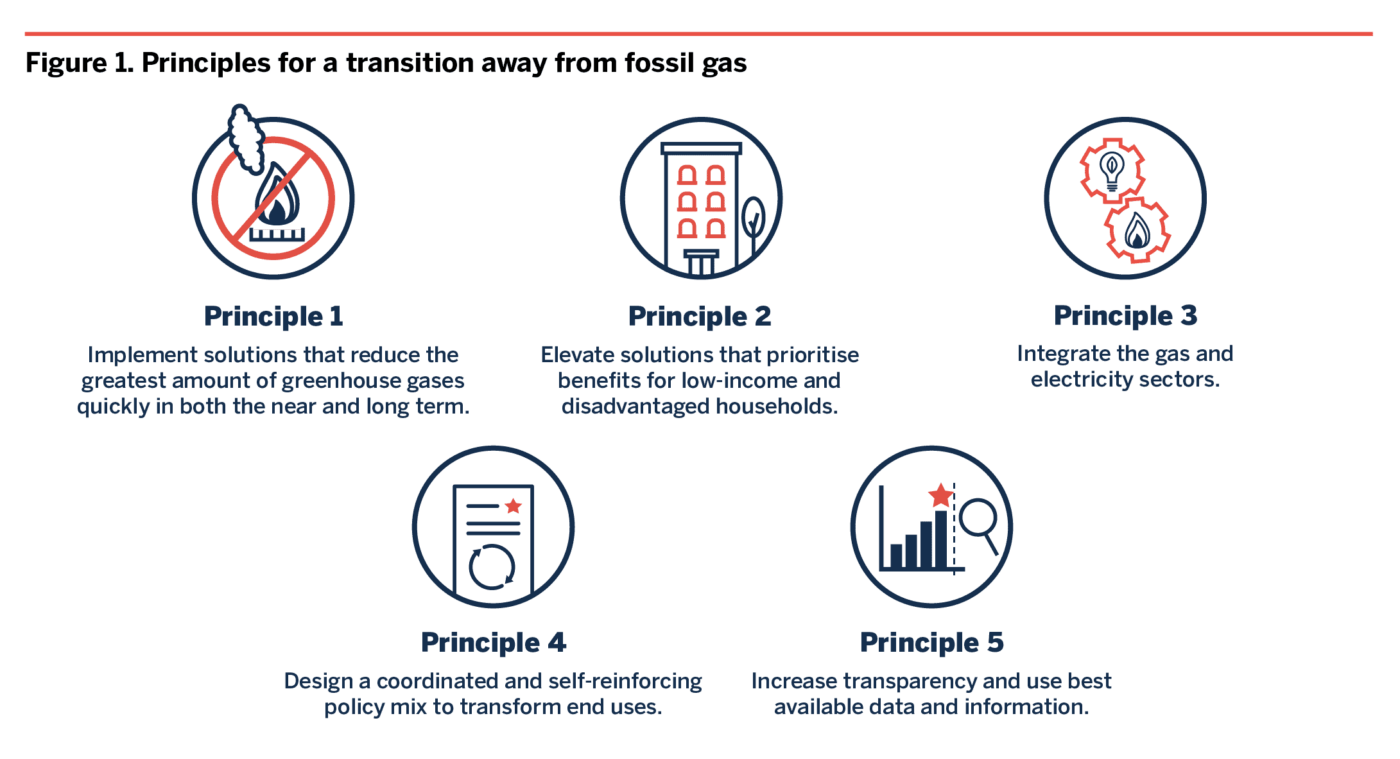Europe’s stated goal of achieving a net-zero power system by 2050 is inherently replete with enormous opportunities and challenges. High energy prices and Russia’s invasion of Ukraine have now ratcheted up the urgent need for action to emergency levels. Policymakers are facing the challenge of a lifetime to secure the supply of energy and protect disadvantaged consumers while maintaining momentum towards long-term climate goals. The events of 2022 have made evident to many experts that the transition away from fossil gas will figure prominently in all of these objectives.
To support policymakers and the numerous stakeholders in planning for a deliberate reduction in the use of fossil gas in the coming years, RAP has developed five fundamental guiding principles. The principles are general in nature due to the breadth of this gas transition and the various policy instruments that governments will need to reform such a large part of our energy economy. In light of the current crises, the authors have also applied these best practices specifically to the European Commission’s proposed Hydrogen and Decarbonised Gas Market package and Hydrogen Strategy, as well as to the hydrogen strategies of selected Member States.
To achieve an efficient and cost-effective transition away from fossil gas, we offer policymakers the following recommendations:




